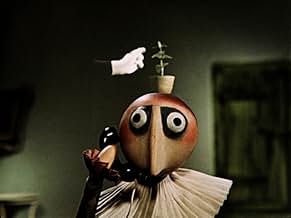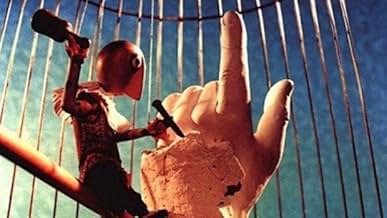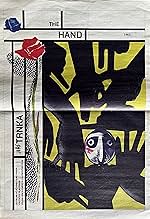'The Hand (1965)' is a Czech new-wave stop-motion short by Jirí Trnka. It tells the tale of a harlequin sculptor who wants nothing more than to take care of his houseplant and create his art (it seems to be a bowl of some sort). In comes a giant hand demanding the sculptor make a statue in its image, and thus the conflict of the picture begins. The thing can easily be read as an allegory for the communism that the Czech Republic (formerly Czechoslovakia) found itself stifled by in the mid-to-late 20th century. The hand is an oppressive force that wants to make the sculptor conform to his wishes; it utilises a number of techniques, some more underhanded than others, to achieve this goal. Unsurprisingly, this leads to nothing other than tragedy. The sculptor will not allow himself to be controlled, so he fights back at every opportunity he gets. However, his fight ultimately feels a little futile because he's trapped no matter which way you look at it (the choice to have his house be surrounded by a void, almost as if it's the set of this film itself, compounds this). Technically speaking, this short is incredible. The animation is wonderfully fluid and instils a real sense of character to its simple protagonist despite his limitations (he doesn't blink, for example). The escalating interactions between the sculptor and the hand are also surprisingly believable. Plus, there are several visually inspired sequences, such as a 'thought bubble' phone conversation, and a generally engrossing atmosphere. It's a really engaging, entertaining and, ultimately, quietly affecting short film. 8/10.
















